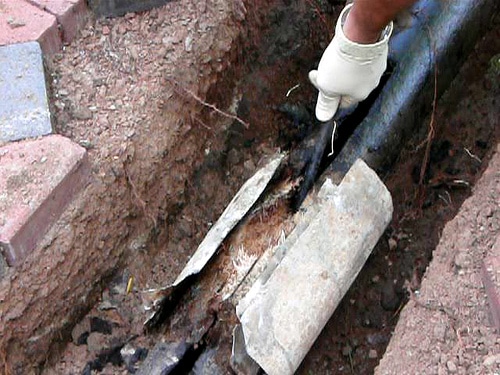As a homeowner, you can do several things to prevent your lateral sewer line from backing up. The same will prevent backups in the main sewer line. To avoid the miseries that come with sewer backups, everyone should apply proper drain cleaning and disposal methods. Here are a few ways you can prevent sewer backups and save yourself the stress associated with them.
Disposal of grease
You should never dispose of cooking oil down the drain. Instead, you should place it in a heat-resistant container and when it cools off, place it in the garbage. Washing it down the drain with hot water is not a solution since the washed-down grease goes down the drain and then solidifies in your drain, the lateral sewer, or the main sewer. This eventually clogs up the drainage system causing backups.
Paper products
Another main threat to the drainage system is paper products. Products such as cloth diapers, feminine sanitary products, and paper towels can clog up the lateral or main sewer if not disposed of properly. These products do not decompose or soften as fast as toilet paper does. They lodge themselves in the drainage system in portions and cause backups in the lateral and or the main sewer. The best way to dispose of these products is to wrap them well and place them in the garbage.
Roots

Small shrubs and trees growing around the house may find their way into your sewer line through the open sewer joints and cracks in search of moisture. At first, the roots might be small and harmless but as the tree continues to grow, its roots become bigger as well and will eventually break the sewer line and allow debris to clog the line and cause a backup. You can prevent this by either replacing your sewer lines with plastic pipes or by ensuring no trees or shrubs are growing or planted near your sewer lines.
Another way is to have the lateral cleared of roots often and to clear the main sewer line occasionally.
Sewer odor
Sewer odor is a serious problem experienced by homeowners. They can smell the sewer from their houses or buildings. While this is a difficult problem to deal with, there are several ways you can prevent it from occurring. You should have water in the P-traps under the drains in your plumbing system. This way, the gases from the sewer cannot get into your house. Occasionally, you should pour water into the sinks and floor drains that are rarely used in the house. Another method is to ensure that all the vents in your house are free from blockages like leaves or bird nests. This way, when there is any odor from the sewers, it will escape through the vents in the roof.
Illegal plumbing connections
You should never connect French drains or other flood control systems to your drainage or sewer system. The way French drains work, is they use perforated underground pipes or wells filled with rocks to spread groundwater or stormwater over a large area of land that then soaks up the water into the ground. Using this system for your drainage system is illegal and you can be arrested and jailed when found out. Besides, even if the authorities do not catch you, these systems are a danger to you. The clean water they spread around will overwhelm your lateral sewer and cause a backup.
Disposal of needles
Sadly, there are people who still dispose of hypodermic needles in their sewer system. Disposing of such items in your sewer system poses a problem that affects more than just the homeowners. The presence of hypodermic needles and other such deadly wastes in the wastewater collection system poses a possibly fatal problem to the people working at the wastewater collection and wastewater treatment plants. Hypodermic needles have had contact with blood and other body fluids that could contain pathogens, which might affect anyone, who handles the needles and is pricked. Therefore, never dispose of your used needles in the drain or flash them.
The best way to dispose of used hypodermic needles is to recap them once you are through with them and put them in a rigid and tough container specifically designated for sharp objects like needles and razor blades. For this, you can use hard and stable containers such as bleach bottles. Do not use weak and easily collapsible containers like milk bottles as the needles may pierce through them and hurt someone or infect them with a fatal disease. Always keep the container far from the reach of children and away from high-traffic areas where someone can stumble on them and get hurt.
When the container is full and you are ready to dispose of it, you should securely tape the container and ask your local pharmacist for advice on the proper disposal methods for such products. You should never flush them or discard them into the garbage.
